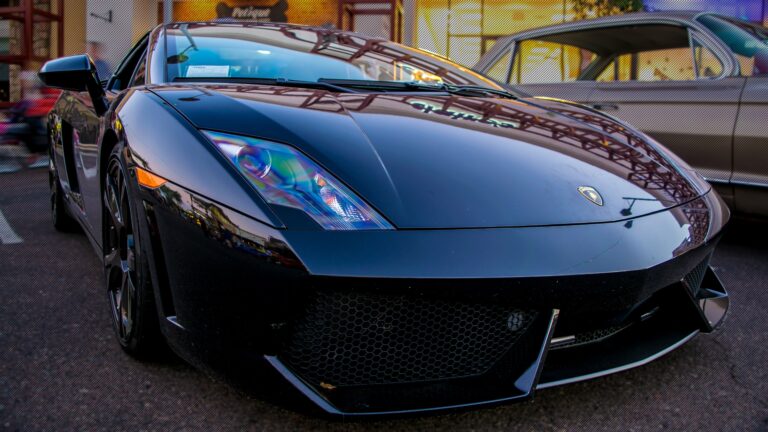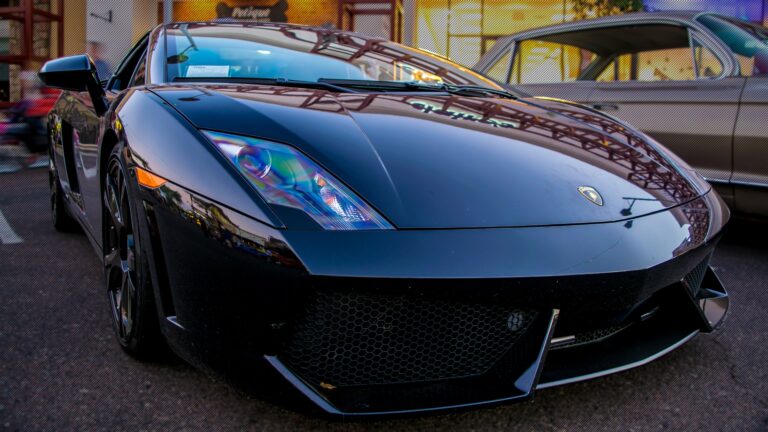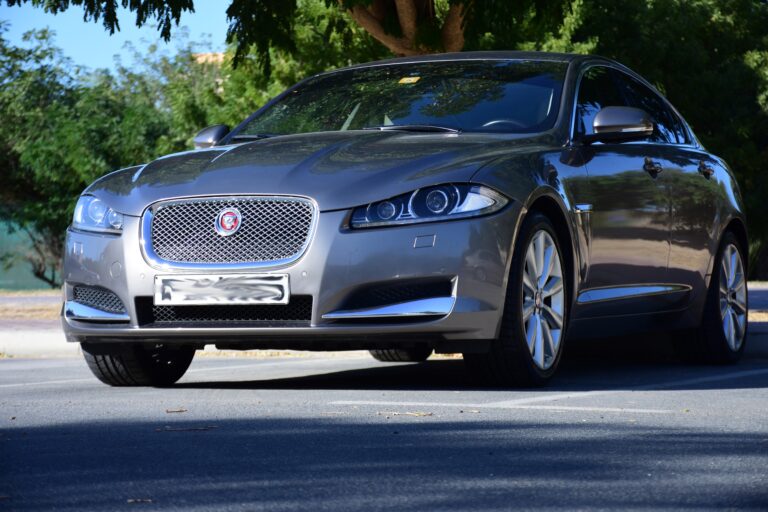Famous Car Brands: A Comprehensive Guide to Automotive Icons
Famous Car Brands: A Comprehensive Guide to Automotive Icons cars.truckstrend.com
Introduction: More Than Just Metal and Wheels
In the vast landscape of global industry, few sectors capture the imagination and embody human ingenuity quite like the automotive world. At its heart lie the "Famous Car Brands" – names that resonate far beyond mere vehicle manufacturers. These brands represent decades, even centuries, of innovation, design excellence, engineering prowess, and cultural impact. They are not just companies; they are symbols of status, performance, reliability, and national pride. From the roaring engines of a Ferrari to the quiet efficiency of a Toyota, and the luxurious comfort of a Mercedes-Benz, famous car brands shape our transportation, reflect our aspirations, and drive technological advancement. Understanding these titans of the industry is to appreciate the intricate dance between heritage and cutting-edge innovation that defines the very essence of mobility.
Famous Car Brands: A Comprehensive Guide to Automotive Icons
This comprehensive guide will delve into what makes a car brand famous, explore the diverse categories they inhabit, offer practical advice for those navigating the automotive market, and cast an eye towards the future of these iconic names.
The Pillars of Automotive Excellence: A Historical Perspective
The journey of famous car brands began at the dawn of the automobile itself. Early pioneers like Karl Benz and Gottlieb Daimler (whose legacy evolved into Mercedes-Benz) laid the foundational stones in the late 19th century, transforming personal transport from a dream into a reality. Henry Ford revolutionized manufacturing with the assembly line in the early 20th century, making cars accessible to the masses and cementing Ford’s place in history.
Over the decades, brands built their reputations through a relentless pursuit of excellence, often forged in the crucible of motorsport. Ferrari’s legendary victories on the race track, Porsche’s dominant endurance racing record, and Mercedes-Benz’s "Silver Arrows" era all contributed immensely to their mystique and performance-oriented image. Other brands, like Volvo, focused on safety, while Toyota and Honda championed reliability and efficiency, catering to different market demands. This rich tapestry of history, innovation, and competitive spirit is fundamental to the enduring fame of these automotive giants.
Decoding Brand Identity: What Makes a Car Brand Famous?
Fame in the automotive world isn’t accidental; it’s meticulously built upon a combination of tangible attributes and intangible perceptions.
1. Innovation and Technology Leadership
Famous brands are often pioneers. Mercedes-Benz introduced the first automobile, ABS brakes, and airbags. Toyota popularized hybrid technology. Tesla revolutionized electric vehicles with long-range batteries and over-the-air updates. Audi’s Quattro all-wheel-drive system redefined traction, and BMW consistently pushes the boundaries of driving dynamics and infotainment. Staying ahead of the curve with new technologies keeps a brand relevant and desirable.

2. Distinctive Design and Aesthetics
An instantly recognizable design language is crucial. The iconic silhouette of a Porsche 911, the aggressive lines of a Lamborghini, the elegant grille of a Rolls-Royce, or the rugged simplicity of a Jeep Wrangler – these designs become synonymous with the brand. They evoke emotion, communicate values, and create a lasting visual identity that transcends individual models.
3. Performance and Engineering Excellence
For many, fame stems from raw power, precise handling, and engineering brilliance. Brands like Ferrari, Lamborghini, McLaren, and Porsche are revered for their high-performance engines, track-focused capabilities, and the thrilling driving experience they offer. Even mainstream brands like Honda (with its VTEC engines) and BMW (with its "Ultimate Driving Machine" philosophy) are celebrated for their engineering prowess.
4. Luxury, Craftsmanship, and Exclusivity

At the pinnacle of the automotive world, brands like Rolls-Royce, Bentley, and Maybach offer unparalleled luxury, bespoke customization, and exquisite craftsmanship. Their fame is built on exclusivity, attention to detail, and a promise of ultimate comfort and prestige. Even premium mass-market brands like Mercedes-Benz, BMW, Audi, and Lexus excel in blending luxury with everyday usability.
5. Reliability and Durability
For a vast segment of the market, reliability and longevity are paramount. Brands like Toyota, Honda, and Subaru have earned their fame through consistent delivery of dependable vehicles that require minimal maintenance and offer excellent resale value. This reputation for quality builds immense trust and customer loyalty.
6. Brand Story and Heritage
The narrative behind a brand is a powerful differentiator. Enzo Ferrari’s unwavering passion for racing, Henry Ford’s vision of mobility for all, or Ferdinand Porsche’s engineering genius – these founding stories and historical milestones imbue brands with a soul. Heritage connects consumers to a legacy of achievement and innovation, adding depth to their identity.

Categories of Famous Car Brands: A Global Overview
The world of famous car brands can be broadly categorized based on their primary focus, market segment, and geographical origin.
1. Luxury and Performance Icons
- Examples: Mercedes-Benz, BMW, Audi, Lexus, Porsche, Ferrari, Lamborghini, Aston Martin, McLaren, Rolls-Royce, Bentley.
- Focus: Cutting-edge technology, superior comfort, exhilarating performance, premium materials, and brand prestige. They often set industry trends in design and engineering.
2. Mass Market & Reliability Champions
- Examples: Toyota, Honda, Ford, Volkswagen, Hyundai, Kia, Nissan, Chevrolet, Subaru.
- Focus: Affordability, practicality, fuel efficiency, strong reliability records, and broad appeal. These brands form the backbone of global car sales.
3. Electric Vehicle Innovators
- Examples: Tesla, Rivian, Lucid, Polestar.
- Focus: Pioneering electric powertrain technology, advanced software integration, and a commitment to sustainable mobility. While some are newer, their rapid rise to fame is undeniable.
4. Off-Road and Utility Specialists
- Examples: Jeep, Land Rover, Toyota (Land Cruiser/Hilux), Mercedes-Benz (G-Wagen).
- Focus: Robust construction, exceptional off-road capability, and utility for diverse environments. Their fame is built on ruggedness and adventure.
5. Niche and Bespoke Manufacturers
- Examples: Koenigsegg, Pagani, Bugatti (often part of larger groups but maintain distinct ultra-luxury identity).
- Focus: Extremely limited production, unparalleled performance, unique craftsmanship, and astronomical price tags. Their fame comes from extreme exclusivity and engineering feats.
Key Considerations When Choosing a Car Brand
For consumers, selecting a car isn’t just about picking a model; it’s often about aligning with a brand’s values and reputation. Here are practical considerations:
- Budget: Beyond the purchase price, consider long-term costs like insurance, maintenance, fuel/charging, and depreciation. Luxury brands often have higher running costs.
- Purpose and Lifestyle: Do you need a practical family car, a fuel-efficient commuter, a powerful sports car, or an off-road adventurer? Different brands excel in different niches.
- Reliability and Maintenance: Research common issues, average repair costs, and parts availability for specific brands and models. Brands like Toyota and Honda are renowned for low ownership costs.
- Resale Value: Some brands, particularly luxury or niche ones, depreciate faster. Others, like Toyota, Honda, and certain premium German brands, tend to hold their value well.
- Safety Features: Evaluate crash test ratings (e.g., IIHS, Euro NCAP) and the availability of advanced driver-assistance systems (ADAS) like automatic emergency braking, lane-keeping assist, and adaptive cruise control.
- Technology and Features: Consider the infotainment system, connectivity options, driver interface, and creature comforts offered by the brand.
- Environmental Impact: If sustainability is a priority, explore brands with strong hybrid or electric vehicle offerings and eco-friendly manufacturing practices.
- Brand Reputation and Customer Service: Read owner reviews, visit dealerships, and assess the brand’s commitment to customer satisfaction. A positive ownership experience extends beyond the vehicle itself.
Practical Advice: Don’t just buy a badge; understand the brand’s core values and how they align with your needs. Test drive multiple brands and models in your desired category. Research long-term ownership costs, not just the sticker price. Engage with owner communities for real-world insights and tips.
The Future of Famous Car Brands: Challenges and Adaptations
The automotive industry is undergoing its most profound transformation since its inception, posing both challenges and opportunities for famous car brands.
1. Electrification
The global shift towards electric vehicles (EVs) is undeniable. Brands must rapidly transition their entire product lines, invest heavily in battery technology, charging infrastructure, and electric motor development. This requires retooling factories, retraining workforces, and redefining their core engineering competencies. Legacy brands face the challenge of shedding their internal combustion engine heritage while new EV players like Tesla have built their fame purely on electric propulsion.
2. Autonomous Driving
The promise of self-driving cars is pushing brands to invest in AI, sensors, and complex software. While fully autonomous vehicles for the masses are still some way off, advanced driver-assistance systems (ADAS) are becoming standard, blurring the lines between driver and machine. Brands must decide how to integrate this technology while maintaining their unique driving characteristics.
3. Connectivity and Digital Services
Modern cars are becoming connected devices. Famous car brands are evolving into mobility service providers, offering subscription features, seamless smartphone integration, and over-the-air updates. This requires a shift in focus from purely hardware to a blend of hardware and software expertise.
4. Sustainability and Circular Economy
Consumers and regulators are increasingly demanding sustainable practices. Brands are focusing on eco-friendly materials, reducing manufacturing emissions, and exploring circular economy principles for recycling and repurposing vehicle components. This commitment to environmental responsibility will become a critical component of brand fame.
5. Shifting Consumer Preferences
The rise of ride-sharing, car subscriptions, and urban mobility solutions is changing how people view car ownership. Famous brands must adapt their business models to cater to these new trends, potentially offering more flexible ownership options or even diversifying into mobility services.
6. Competition from New Entrants
The industry is no longer solely dominated by traditional automakers. Tech giants (e.g., Apple, Sony) and numerous EV startups are entering the fray, bringing fresh perspectives and challenging established norms. Famous car brands must innovate faster and maintain their distinct identities to fend off these new competitors.
Famous Car Brands: An Overview Table
This table provides a snapshot of some famous car brands, highlighting their country of origin, a key characteristic, and a typical price range (reflecting the diversity of models offered by each brand).
| Brand | Country of Origin | Key Trait/Focus | Typical Price Range (USD) |
|---|---|---|---|
| Toyota | Japan | Reliability, Efficiency, Mass Market Appeal | $22,000 – $85,000+ |
| Honda | Japan | Reliability, Engineering, Practicality | $20,000 – $55,000+ |
| Ford | USA | Robustness, Pickup Trucks, Mass Market | $25,000 – $100,000+ |
| Volkswagen | Germany | German Engineering, Quality, Broad Appeal | $23,000 – $65,000+ |
| Mercedes-Benz | Germany | Luxury, Innovation, Premium Performance | $45,000 – $200,000+ (AMG models higher) |
| BMW | Germany | Driving Dynamics, Sporty Luxury, Technology | $40,000 – $180,000+ (M models higher) |
| Audi | Germany | Sophisticated Design, Quattro AWD, Technology | $38,000 – $170,000+ (RS models higher) |
| Lexus | Japan | Refined Luxury, Reliability, Comfort | $40,000 – $100,000+ |
| Porsche | Germany | Sports Car Performance, Everyday Usability | $65,000 – $250,000+ (GT models higher) |
| Ferrari | Italy | Exclusivity, Supercar Performance, Heritage | $250,000 – $1,000,000+ (and beyond) |
| Lamborghini | Italy | Extreme Performance, Bold Design, Exclusivity | $220,000 – $600,000+ |
| Tesla | USA | Electric Vehicles, Technology, Autonomy | $40,000 – $130,000+ |
| Volvo | Sweden | Safety, Scandinavian Design, Sustainability | $38,000 – $80,000+ |
| Jeep | USA | Off-Road Capability, Iconic Design | $30,000 – $80,000+ |
| Land Rover | UK | Luxury SUVs, Off-Road Prowess | $50,000 – $200,000+ |
| Hyundai | South Korea | Value, Warranty, Rapid Improvement | $20,000 – $60,000+ |
Note: Price ranges are approximate and can vary significantly based on model, trim, options, region, and market conditions.
Frequently Asked Questions (FAQ)
Q1: What is the oldest continuously operating car brand?
A1: While there’s debate depending on the exact definition, Mercedes-Benz traces its origins back to Karl Benz’s 1886 Patent-Motorwagen, making it arguably the oldest car brand in continuous production.
Q2: Which car brand is considered the most reliable?
A2: Brands like Toyota, Honda, and Lexus consistently rank at the top for reliability in various independent surveys (e.g., J.D. Power, Consumer Reports). Their reputation is built on strong engineering and quality control.
Q3: What are the most luxurious car brands?
A3: Brands like Rolls-Royce, Bentley, and Maybach (part of Mercedes-Benz) are considered the epitome of automotive luxury, offering unparalleled craftsmanship, bespoke options, and prestige. Mercedes-Benz, BMW, Audi, and Lexus also offer significant luxury in their premium ranges.
Q4: Which car brand is most known for performance?
A4: Ferrari, Lamborghini, Porsche, and McLaren are synonymous with high performance, producing some of the fastest and most technologically advanced sports cars and supercars in the world.
Q5: Are electric car brands becoming more famous than traditional brands?
A5: Electric car brands like Tesla have rapidly achieved global fame due to their pioneering technology and market disruption. While traditional brands still hold significant market share and recognition, the shift towards electrification is elevating new EV-focused brands into the mainstream.
Q6: How do car brands maintain their fame in a changing market?
A6: Famous car brands maintain their fame by continuously innovating, adapting to new technologies (like EVs and autonomous driving), maintaining strong brand identities, engaging with their customer base, and often leveraging their rich heritage while looking to the future.
Conclusion: The Enduring Appeal of Automotive Legends
Famous car brands are far more than just manufacturers of vehicles; they are cultural institutions, technological pioneers, and reflections of human ambition. They have shaped our past, define our present, and are poised to redefine our future. From the roar of a V12 engine to the silent glide of an electric motor, these brands encapsulate dreams, status, and the very essence of mobility.
Their enduring appeal lies in their ability to blend a storied heritage with relentless innovation, consistently pushing the boundaries of design, engineering, and performance. As the automotive landscape continues its dramatic transformation, these iconic names will undoubtedly continue to evolve, adapt, and lead, ensuring that the allure of a truly famous car brand remains as strong as ever.




